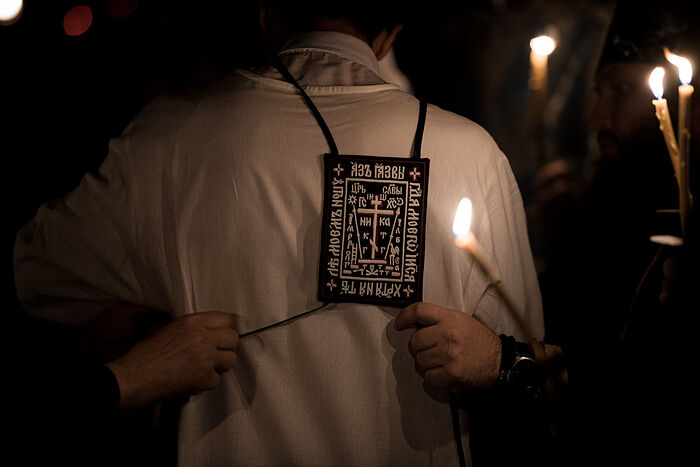What’s really going on in the Catholic Church in the United States right now?
In many parts of the country, the hard numbers reflect a sobering reality: declines in baptisms, marriages, and ordinations to the priesthood; closing parishes and shrinking dioceses. In others, signs of growth where immigrants seem to be counteracting those trends.
What’s harder to pin down is the overall “mood” of Catholics in the U.S. Lately, they’ve witnessed a reawakening of the clergy sexual abuse crisis, endured the effects of a pandemic, and been largely indifferent to an ongoing synod styled as a listening exercise that sought out their input on the state of the Church.
At the same time, words like “vibrant” and “robust” are frequently used by leaders — particularly bishops — to describe thriving ministries and success stories. Enthusiasm is building toward the National Eucharistic Revival planned by the country’s bishops, set to culminate with a large-scale pilgrimage to Indianapolis this summer.
But rather than try to break down the numbers and figures, veteran Church communicator Francis X. Maier had a different idea: Talk to Americans serving the Church — bishops, priests, and laypeople — give them the option of remaining anonymous (in order to be able to speak more freely) and gather their thoughts in a book.
The result, titled “True Confessions” (Ignatius Press, $24.95) represents a doctor’s checkup of sorts on the state of the U.S. church, offering a snapshot of its hopes and fears, as well as its strengths and its sicknesses. After reading it, I asked Maier, who’s had a storied career as a screenwriter, journalist, and senior adviser to retired Archbishop Charles Chaput (in both Denver and Philadelphia) about his experience with the project and what he took away from it.
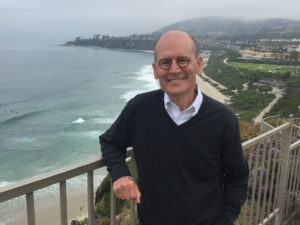
Francis X. Maier (Submitted photo)
You frame this book as a big undertaking: an attempt to take a “snapshot” of the Church in the United States at this moment in history. What prompted you to take something like this on?
I had the kind of experiences that allowed me to do it: I worked in and around the Church for nearly five decades, first as a journalist, then as a diocesan staffer, and then 23 years as senior aide to a metropolitan archbishop. The clergy and laypeople I worked with were overwhelmingly good people. I loved the Church when I started, and over the years I saw both the best and the worst in the Church in an intimate way; a way laypeople rarely do. At the end of it all, I love her even more now than when I began. So when you approach the end of a good career, you want to take stock and sum up what you’ve learned and seen as a record to be shared with others.
“True Confessions” is based on 103 interviews I did over a 17-month period with bishops — 30 of them from 25 different states and one overseas diocese — other clergy and religious, and laypeople. I avoided the extremes in the Church. I focused on faithful people sincerely trying to live what the Church believes and teaches. And I think what emerges is an honest portrait of American Catholic life in the third decade of the 21st century: There’s a lot of very sobering candor. There’s nothing Pollyannaish about any of the content; but there’s also a deep well of fidelity, energy, and hope that rarely gets mass media attention.
I’ve been disappointed with foreign, including Roman, criticism of the U.S. church over the past decade. It hasn’t been fair, and the people I worked alongside deserve better. I was struck some years ago by a piece in La Civilta Cattolica, which was remarkably ill-informed. I could have done a better and more accurate job of naming the problems in U.S. Catholic life myself. The article was a disservice to the many people in this country who actually live and do the work of the Gospel. It operated out of an ignorance and questionable spirit that left a permanent bad taste. And it hasn’t been an isolated example.
In the book’s introduction, you write: “The Church is the soul of the world and the leaven of a just society. To live that mandate, she needs to recover her health and mission. But an illness can be addressed and healed only when it’s named.” So, after all the work you put into this book, what is the illness?
In the process of assimilating, we tend to absorb the flaws of American culture along with its positives. We forget our history and therefore our identity and missionary mandate as a believing community. We become unmoored from our foundations. As a result, a lot of Catholics live their faith as a good ethical code that more or less guides their sense of right and wrong. But the supernatural stakes at the heart of the faith are forgotten, and that eventually kills belief. You can see it in a variety of ways: the urgency to conform ourselves to popular opinion on sexuality issues, for example. There’s a great desire not to be different; not to be cut out of the herd.
Tocqueville noted 200 years ago that Americans, for all our talk about democracy, equality, free will, and individualism, tend to be creatures of public opinion. If public opinion is running against the Church, then many of us will lean in that direction. So that’s a huge problem now: this desire to not be embarrassed by Church teachings that are inconvenient for secular society.
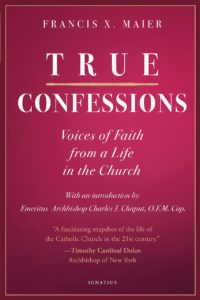
(OSV News/Ignatius Press)
There’s a lot of talk these days about polarization and political ideology in the Church. But is there a deeper “illness” you think might be afflicting Catholics, regardless of whether they’re so-called liberals or conservatives?
Look, I want to get to heaven, and a Christian life lived well is the way to do it. But that gets obscured, particularly in an election year, by whether you’re voting for Biden because of this, or for Trump because of that. I think both men are embarrassments to our system of government, and a further sign of the turmoil in our culture.
Politics is about getting and using power, and power is our favorite golden calf, no matter how we dress it up with moralizing language. That’s especially true in a time of rapid social change, which is where we are right now. Confusion feeds anxiety, which feeds our appetite for control, which makes us unhinged in some of our most important choices.
We’re living through a kind of new Reformation. I mean a literal re-formation or restructuring of the way we look at the world and ourselves. And it can get very painful and very dangerous. In a technologically dominant society, the supernatural can seem implausible. The political environment will reflect that. So if we really believe there’s something more than this world and this life, then we can’t be purely political animals. We have to see beyond politics, because it always has a dark side. But that’s very hard to do when you’re wrapped in a 24/7 media cocoon that’s often toxic and misleading.
The question of whether Trump or Biden is “better” from a Catholic perspective is almost irrelevant to the real issues of the moment. Both men are expressions, more than the cause, of our culture’s deeper contradictions. You can’t build a healthy society on the worship of more and better stuff, faster. But that’s what American life now tries to do. I want a world where my kids and grandkids can feed their souls as well as their stomachs; where they can deepen their faith in a loving and just God and practice their religious convictions in a way that makes the world better. I just don’t see that happening this year or next, no matter who gets elected.
It doesn’t absolve us as Catholics from political involvement, but we need a cold shower in reality about what politics can accomplish, what it can’t, where it’s leading us, and where it stands in our priorities.
The concerns that people voice in “True Confessions” track pretty closely with what I’ve just said. They know there’s something more than all this turmoil, and they want something deeper and more life-giving than a culture of relentless conflict and name-calling, both of which invade even the Church.

President Donald Trump and Democratic presidential nominee Joe Biden participate in their final 2020 U.S. presidential campaign debate at Belmont University in Nashville, Tenn., Oct. 22, 2020. (CNS/Mike Segar, Reuters)
One of the bishops you interviewed said: “I think we all need to realize, not just bishops but all of us, that we’ll face a much less friendly climate in this country going forward.” After your work on this book, what do you think the Church can do to equip my generation to have kids and raise families in this less-friendly future?
We can start by helping our people be more uncomfortable with this country. Patriotism, properly understood, is an important Christian virtue. It’s a form of filial love for the best ideals of our nation. But real love is always anchored in truth, and the truth is — I heard versions of this again and again while working on “True Confessions” — we now have a culture that turns mature citizens into self-absorbed consumers led by even more self-absorbed and self-flattering leaders. That doesn’t end well.
My generation, the Baby Boomer Catholics, were educated to be good Americans, to assimilate, to be part of the program. And we can be proud of some of the things we’ve contributed and achieved. But we don’t really “fit” here on some fundamental level. Again, that doesn’t give us the right to abandon our public engagement — quite the opposite. But this world, this country, isn’t our home, and we’ve lost that knowledge, which is biblical. The New Testament says that here “we have no lasting city, but we seek the city which is to come.” We need to recover that wisdom.
Unless we develop a more reserved and critical relationship with our current culture, we’re not doing our job as a Christians.
Two of the biggest “disruptor” moments for priests in the last couple of decades have been the sexual abuse crisis and the COVID-19 pandemic. Based on your interviews with priests for this book, which of the two left a bigger mark?
The abuse crisis. Quite apart from the damage done to victims by a minority of bad clergy, the other lingering wound — innocent priests not fully trusting their bishops — comes from the worry that they could be thrown overboard to protect the institution based on a false allegation. It’s not a universal feeling. But as that 2022 survey of priests from the Catholic University of America suggested, it’s a significant issue with a lot of priests.
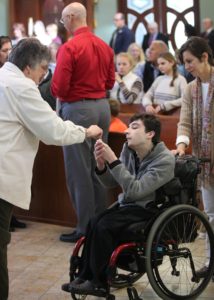
Ben Lash receives Communion during an Oct. 28, 2018, Mass for people with special needs at Jesus the Divine Word Church in Huntingtown, Maryland. (CNS/Bob Roller)
Somebody might read this book and dismiss it as kind of a dark assessment of things. How would you respond? Is there hope out there?
“True Confessions” is only “dark” if you over-focus on the words of criticism. But there’s much more than that to the text.
Every good Christian marriage has a framework of love and a spirit of trust; it also has a boatload of candor that can sometimes get pretty blunt. A faithful life in the Church is very much the same. People don’t invest their lives and waste their time on things they don’t love. And the voices in “True Confessions” are passionate about their love for the Church: their confidence and hope and joy in the Church. They prove it with their lives. In the end, we’re defined by what we do; that’s why it’s called the Acts of the Apostles, and not their big ideas or frustrated complaints.
Every person interviewed in “True Confessions” confesses Jesus Christ by the witness of his or her life. I’ve read the interviews in Chapter 6, with parents of children with special needs, more than a hundred times. I’m moved every time. I don’t know where that kind of unselfconscious love and heroism comes from, but I’ve found it again and again throughout my life in the Church.
It’s impossible to come away from such people afraid or discouraged. So I believe very strongly that if you read “True Confessions,” you’re going to finish it with a spirit of hope. Because people really do believe. They really do have joy. And they’re committed to the future of the Church.
Francis X. Maier is currently a Senior Fellow in the Catholic Studies Program at the Ethics and Public Policy Center.

 Macedonian Church received autocephaly “without conditions, pressure, concessions, hidden interests,” says Macedonian hierarch in fiery defense of MOC-OA name and statusThe Macedonian Orthodox Church-Ohrid Archbishopric (MOC-OA) has full and complete autocephaly, and does not need to change its name in order to receive a new tomos from the Patriarchate of Constantinople, an elder bishop of the MOC-OA writes in a new statement.
Macedonian Church received autocephaly “without conditions, pressure, concessions, hidden interests,” says Macedonian hierarch in fiery defense of MOC-OA name and statusThe Macedonian Orthodox Church-Ohrid Archbishopric (MOC-OA) has full and complete autocephaly, and does not need to change its name in order to receive a new tomos from the Patriarchate of Constantinople, an elder bishop of the MOC-OA writes in a new statement. Macedonian Church rejects communion with Ukrainian schismaticsThe Holy Synod of the MOC decided to wait until the OCU’s status is finalized for the whole Church.
Macedonian Church rejects communion with Ukrainian schismaticsThe Holy Synod of the MOC decided to wait until the OCU’s status is finalized for the whole Church. Constantinople doesn’t want Macedonian Church to use its own name even for internal use, says MOC hierarchHis Eminence Metropolitan Petar of Prespa and Pelagonia’s comments to TV Thelma come against the background of the question of the MOC’s precise status within the Orthodox world.
Constantinople doesn’t want Macedonian Church to use its own name even for internal use, says MOC hierarchHis Eminence Metropolitan Petar of Prespa and Pelagonia’s comments to TV Thelma come against the background of the question of the MOC’s precise status within the Orthodox world. Macedonian-Ohrid Church issues statement on its name and autocephalyThe hierarchs of the Synod gathered in a regular session yesterday, February 21. Among the topics discussed was the Church’s relations with other Local Churches.”>last February, the MOC Synod explicitly understands itself as the guardian of the Church’s statutory order and norms, including its full name of “Macedonian Orthodox Church-Ohrid Archbishopric.”
Macedonian-Ohrid Church issues statement on its name and autocephalyThe hierarchs of the Synod gathered in a regular session yesterday, February 21. Among the topics discussed was the Church’s relations with other Local Churches.”>last February, the MOC Synod explicitly understands itself as the guardian of the Church’s statutory order and norms, including its full name of “Macedonian Orthodox Church-Ohrid Archbishopric.” 




 Blasphemous black metal concert canceled after protest from Orthodox ChristiansThe band was formed by Krzysztof Drabikowski in Białystok, Poland, in 2015. Drabikowski spent six years studying at the famous Supraśl Monastery and is well acquainted with Orthodox services and hymnography. But instead of honoring the Lord, he uses his music to mock and blaspheme all things sacred.
Blasphemous black metal concert canceled after protest from Orthodox ChristiansThe band was formed by Krzysztof Drabikowski in Białystok, Poland, in 2015. Drabikowski spent six years studying at the famous Supraśl Monastery and is well acquainted with Orthodox services and hymnography. But instead of honoring the Lord, he uses his music to mock and blaspheme all things sacred. Argentina: Orthodox hierarchs protest blasphemous “art” at local museumThe statement the hierarchs handed to the museum management expressed protest against the display of such objects, which are “a blatant encroachment on the religious sensibilities of believers and a violation of moral and ethical principles accepted throughout the world.””>In February 2022, three Orthodox hierarchs in Argentina protested the blasphemous disfigurement of an icon of Christ the Savior at the Enrique Larreta Museum of Spanish Art in Buenos Aires.
Argentina: Orthodox hierarchs protest blasphemous “art” at local museumThe statement the hierarchs handed to the museum management expressed protest against the display of such objects, which are “a blatant encroachment on the religious sensibilities of believers and a violation of moral and ethical principles accepted throughout the world.””>In February 2022, three Orthodox hierarchs in Argentina protested the blasphemous disfigurement of an icon of Christ the Savior at the Enrique Larreta Museum of Spanish Art in Buenos Aires.  Maslenitsa – Cheese-fare Week
Maslenitsa – Cheese-fare Week

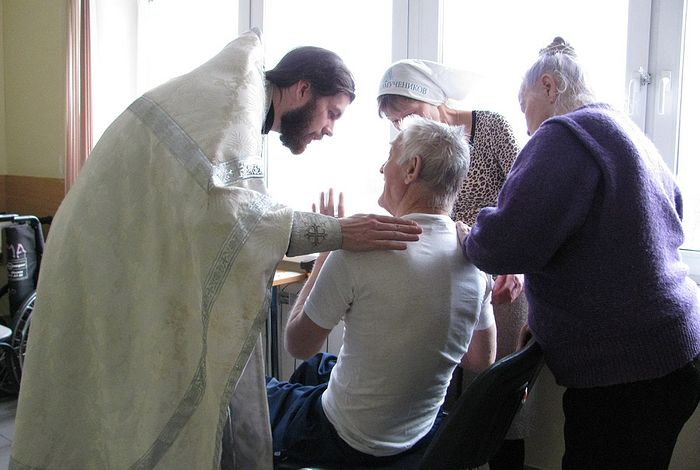
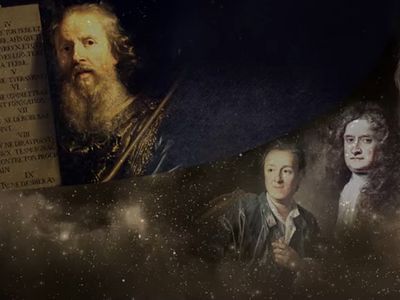 Has science rejected God?The first chapter of the book of Genesis, as we remember, speaks about how God created the world and man. Perhaps no other Biblical narrative causes such aggressive attacks as that on the creation of the world. “It’s not scientific!” is the main argument. But are science and faith truly contradictory; can scientists be believers? And are those theories that contradict the Bible truly “scientific?” Should science, in principle, concern itself with questions of the origin of the world? Religious historian Andrei Ivanovich Solodkov contemplates these questions.
Has science rejected God?The first chapter of the book of Genesis, as we remember, speaks about how God created the world and man. Perhaps no other Biblical narrative causes such aggressive attacks as that on the creation of the world. “It’s not scientific!” is the main argument. But are science and faith truly contradictory; can scientists be believers? And are those theories that contradict the Bible truly “scientific?” Should science, in principle, concern itself with questions of the origin of the world? Religious historian Andrei Ivanovich Solodkov contemplates these questions.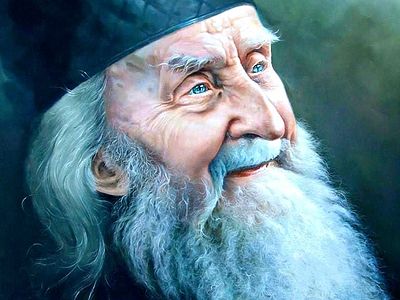 The Theology and Memory of Elder Sophrony (Sakharov)”Coming into contact with Father Sophrony was always an event of a most especial kind. His monastics, first and foremost, but also those who made up his wider spiritual family, ‘lived,’ as Father Zacharias put it, ‘in an abundance of the word of God.”’
The Theology and Memory of Elder Sophrony (Sakharov)”Coming into contact with Father Sophrony was always an event of a most especial kind. His monastics, first and foremost, but also those who made up his wider spiritual family, ‘lived,’ as Father Zacharias put it, ‘in an abundance of the word of God.”’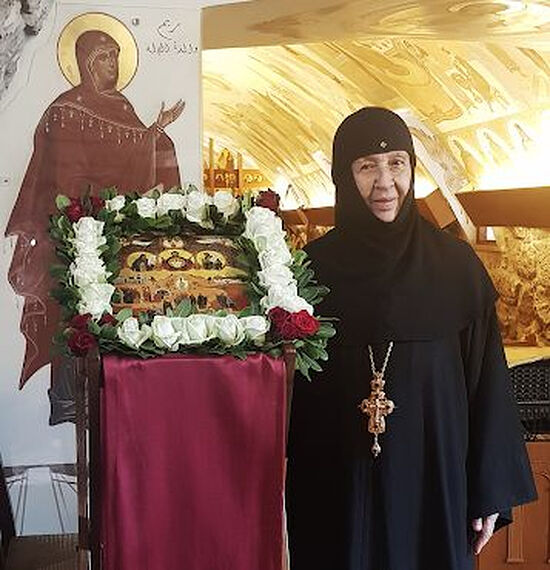

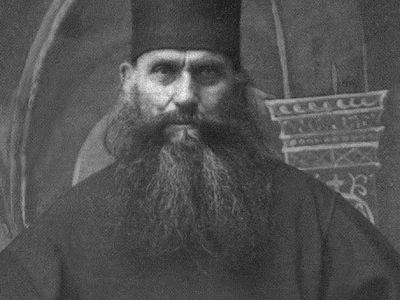 St. Silouan of Mt. Athos: “I have many sorrows of my own, and they are my own fault…”There are moments when it seems that circumstances are indeed beyond our power, when life breaks down and it’s painful even to look at the world around us. Reality is cruel, and the soul can truly become sick. And no one knows when sorrows will knock at doors of the heart. But we must know in that moment how to answer these unawaited guests…
St. Silouan of Mt. Athos: “I have many sorrows of my own, and they are my own fault…”There are moments when it seems that circumstances are indeed beyond our power, when life breaks down and it’s painful even to look at the world around us. Reality is cruel, and the soul can truly become sick. And no one knows when sorrows will knock at doors of the heart. But we must know in that moment how to answer these unawaited guests…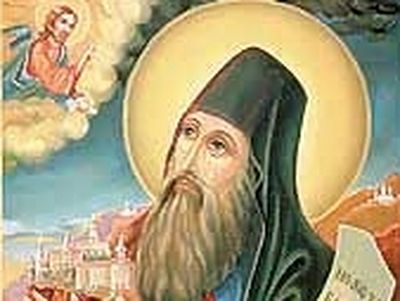 On the Love of Enemies: the Teaching of St. SilouanAlthough it is natural and usual to love those who love us and to do good to those who do good to us, to love our enemies is distasteful to our nature. One can say that it isn’t in our power but is an attitude that can only be the fruit of grace, given by the Holy Spirit. This is why St. Silouan the Athonite writes, ”The soul that has not known the Holy Spirit does not understand how one can love one’s enemies, and does not accept it.”
On the Love of Enemies: the Teaching of St. SilouanAlthough it is natural and usual to love those who love us and to do good to those who do good to us, to love our enemies is distasteful to our nature. One can say that it isn’t in our power but is an attitude that can only be the fruit of grace, given by the Holy Spirit. This is why St. Silouan the Athonite writes, ”The soul that has not known the Holy Spirit does not understand how one can love one’s enemies, and does not accept it.”